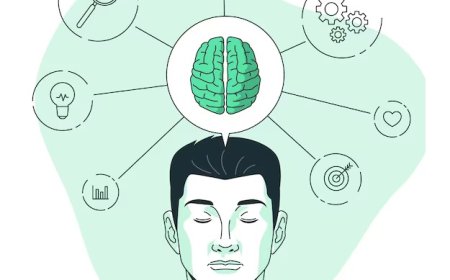In today's digital age, social media has become an integral part of our daily lives.
From keeping us connected with friends and family to providing a platform for self-expression, its impact is undeniable. However, recent studies have shed light on the complex relationship between mental health and social media usage. Here are 10 key insights into this connection:
Comparison and Self-Esteem:
Constant exposure to curated content on social media platforms can lead to feelings of inadequacy and low self-esteem as individuals compare their lives to others' highlight reels.

Cyberbullying:
The anonymity provided by social media can embolden individuals to engage in cyberbullying, which can have severe consequences on the mental well-being of victims.
Fear of Missing Out (FOMO):
Scrolling through social media feeds can exacerbate feelings of FOMO, leading to anxiety and a sense of being left out among users.
Sleep Disruption:
Excessive use of social media, especially before bedtime, can disrupt sleep patterns, contributing to mood disturbances and decreased overall well-being.
Filter Bubble:
Algorithms on social media platforms often create echo chambers where users are exposed only to content that aligns with their beliefs, potentially reinforcing negative thought patterns and reducing exposure to diverse perspectives.
Addiction:
The constant need for validation through likes, comments, and shares can lead to addiction-like behaviors, impacting mental health and overall productivity.
Body Image Issues:
Pervasive beauty standards promoted on social media platforms can fuel body dissatisfaction and contribute to the development of eating disorders and other body image-related concerns.
Social Comparison:
Excessive social media use can foster a culture of comparison, where individuals constantly measure their lives against unrealistic standards, leading to feelings of inadequacy and depression.
Reduced Face-to-Face Interaction:
Excessive reliance on social media for communication can lead to decreased face-to-face interaction, impacting interpersonal relationships and overall social connectedness.
Positive Support Networks:
Conversely, social media can also serve as a platform for positive support networks, providing individuals with a sense of belonging and connection during challenging times.
While social media offers numerous benefits, it's crucial to recognize its potential impact on mental health. By fostering digital literacy, promoting healthy online habits, and seeking support when needed, individuals can navigate the digital landscape more effectively while safeguarding their mental well-being.
Follows Us for More Updates
Like Us on Facebook Page :
Click Here
Like Us on Instagram :
Click Here






























